Today’s post started out as something else, but ended up as an accidental book review of the excellent The Meaning Of Travel and yet another opportunity for me to take a dig at The Beach.
“The word ‘Utopia’ is Greek, and it is a joke on More’s part: it means ‘no–place’. Like travel books, utopian stories abounded during the European Age of Discovery.
...
Travel books and utopias both portray difference. They both involve physical journeys to reach new lands. They also both involve more metaphorical journeys: encounters with new peoples and new ideas. Further, travel books and utopias are both ‘reflexive’. They purport to show foreign places but really encourage readers to reflect on their home places. Travel books and utopias feed off each other. Utopias are modelled on travel books, and travellers searched for utopias.”
So writes Emily Thomas in The Meaning Of Travel. The book explores the Western philosophy of travel (other takes are reserved for future titles). I finished the book a week or so ago and since then have kept going back to it. I loved it.
Buy it and grab a hammock. Photo: Stuart McDonald.
Thomas More was kicking around in the 15th and 16th century, and is perhaps best known for being beheaded—and asking his executioner to not damage his beard. His head fixed on a pike on London Bridge, his devoted daughter later nicked it and preserved it in spices—I blame Wikipedia for this gruesome tangent.
Thomas describes More’s fictional Utopia as “a thought experiment”. The island is home to fifty four cities and sits off the coast of South America. The society, cultural practises and laws, are considerably different to those of Europe at the time. No word on beheadings though.
Careful with the beard please. Photo: Wikimedia commons.
More is one of the earliest philosophers Thomas looks at. As the centuries roll on through her book, many of the conversations struck me as eerily familiar—and I’m not a frequent philosophy reader! How is it that some 400 years later, we’re still having the same discussions?
Thinking about More’s Utopia, I sat down to rewatch The Beach the other night. Set in Thailand, the Danny Boyle film was released in 2000 and is based on Alex Garland’s book from 1996. The book is a decent page turner, the film though, is pretty awful. Nevertheless, the double whammy positioning Thailand were a serious shot in the arm for the country’s tourism industry. Looking around for similar examples, you could argue Elizabeth Gilbert’s Eat, Pray, Love (2006) had a similar effect on Bali.
Sorry Richard, John Thornton was there back in 1701. Image: Bibliothèque nationale de France. Photo: Travelfish
Both were in the business of portraying a utopia—a place that never exists outside of the wildest fever dream.
Early on in The Beach, the protagonist, Richard, meets Daffy—the messenger, the gatekeeper to Utopia. From the script:
Daffy: “Ten dollars. I'll find a way to pay you back. How would you like to know about somewhere special? The perfect beach. Paradise. No one else knows about it. That's got to be worth something. What do you say?”
Who wouldn’t be intrigued by Daffy’s offer? Likewise who hasn’t met a traveller on the road who hasn’t made similar promises. Tips to find a magically untouched, deserted place—a secret place. Back to secrets again—something I’ve written about before.
Richard clearly told everyone. Ko Phi Phi Leh. Photo: Stuart McDonald.
Here also, is a strong example of what Thomas writes about—how utopias portray difference. Daffy’s beach is like nowhere else—and nobody else knows about it. It is a reflection on both Daffy and Richard’s home places—it is what they are not.
The irony of course, is that as these “utopias” are discovered, they become more and more like the “discovers’” home places. Thirty years ago I bet there wasn’t an Irish pub on Thailand’s Ko Phi Phi. People visit, more visit, more still. Each in turn packing a glad–bag of demands to make it more like home. On Thailand’s many southern islands, this process has repeated itself ad nauseam. Not just making them more like “home” but also, inevitably, more like one another.
And so the Utopia–seekers turn their gaze elsewhere.
Desperately seeking Leonardo. Photo: David Luekens.
As is the case with most travellers, Richard turns out to be a lousy secret keeper. The ink has barely dried on the map to Daffy’s Utopia when he’s spilling the beans to two French travellers. The power of bragging rights is strong in you young Richard.
Richard: “Hi. You want to take a hike? I mean a trip. A journey. With your girlfriend and me. I mean the two of you, and me. It's a secret island. Paradise. You know the kind of thing I'm talking about.”
Of course, without adding too many spoilers, the beach turns out to be far from paradisiacal. Imagine Golding’s Lord of the Flies with a 1990s soundtrack. I guess I’m showing my age here, but The Beach’s soundtrack is the sole highlight.
The On On was never Utopia. Photo: Stuart McDonald.
In the current climate most desires to jet around the world for a slice of Utopia are on hold. For now, and probably much of this decade, “local travel” is destined to be the rage. No sweat—Thomas and her philosopher crew have you covered.
On wilderness, Thomas writes, quoting a beautiful extract from Henry David Thoreau’s Walden; or, Life in the Woods:
“These small waves raised by the evening wind are as remote from storm as the smooth reflecting surface. Though it is now dark, the mind still blows and roars in the wood, the waves still dash, and some creatures lull the rest with their notes. The repose is never complete.”
Wow—“the mind still blows and roars in the wood”—how great is that?!
Thoreau had sought “solitude”, building a cottage by a lake in the woods. I put solitude in quotes as, in a moment of dry humour, Thomas points out he still had his mother on hand to wash his underwear.
You can’t truly enjoy Utopia without Mum right?
Woods, water and a dose of danger = Sublime. Hala Bala Wildlife Sanctuary, Narathiwat. Photo: Stuart McDonald.
One of my favourite themes though, centred around mountains and the sublime. Mountains were once viewed negatively writes Thomas.
“John Donne’s 1611 poem ‘Anatomy of the world’ describes mountains as ‘warts, and pock–holes on the face of th’ earth.”
Though by the 1800s, this changed and was often tied in with God, quoting Elena Ghica, writing of the Alps:
“The image of the infinite presented itself to my mind in all its formidable grandeur. ... I conceived such an idea of God that it appeared to me I had never before that day given him sufficient place in my heart.”
From something to be feared to an object of divinity. Here on Bali every house has an alter or temple built to face Gunung Agung—the holiest peak on the island. Divine indeed.
Touched by God. On the crater rim, Gunung Agung, Bali. Photo: Stuart McDonald.
From the divine to the sublime. Writes Thomas:
“Beauty is relaxing, whereas the sublime is overwhelming. Our idea of beauty is founded on pleasure, whereas our idea of the sublime is founded on pain and danger. Unlike our experience of beauty, our experience of the sublime is mixed: it involves terror and enjoyment.”
I’d never thought of sublime in these terms—I’d always associated it with extreme pleasure. But the more I thought about it, the more I realised Thomas is right. Experiences I’ve had that I’d honestly describe as sublime, invariably had a dangerous aspect to them.
Which brings me back to that movie. A secondary character is attacked by a shark and Richard muses:
“The way I saw it, sharks live in the sea, so if you go swimming where they live, they might eat you. That's what sharks are good at, that's what they do. I could have explained this to Christo but I just knew he wouldn't see it.”
The island that hosted the beach also hosted local pot farmers—forever a shadow in the background. Utopia must be sublime, but you need danger to fully form it.
Waterfall near Merente, Sumbawa. Photo: Stuart McDonald.
The Meaning Of Travel covers far more of course. The section on the dearth of female travel writers (and philosophers!) had me sheepishly realising I could only name one travel book I’ve read not by a man. Side note, do read Pam Mandel’s The Same River Twice, which I wrote about here. Likewise religion, and the God–fearing nature of many, and how their beliefs drove much early travel, was fascinating.
Overall, The Meaning Of Travel by Emily Thomas is a great read, well suited to a hammock strung in your own private Utopia. I can’t wait for the the Chinese, Indian and African philosophical takes on travel!

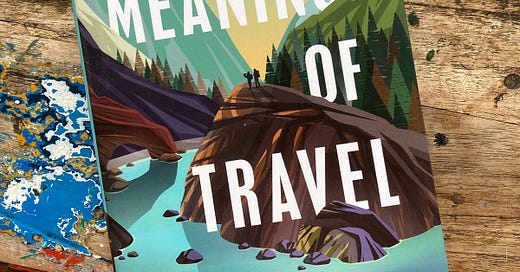





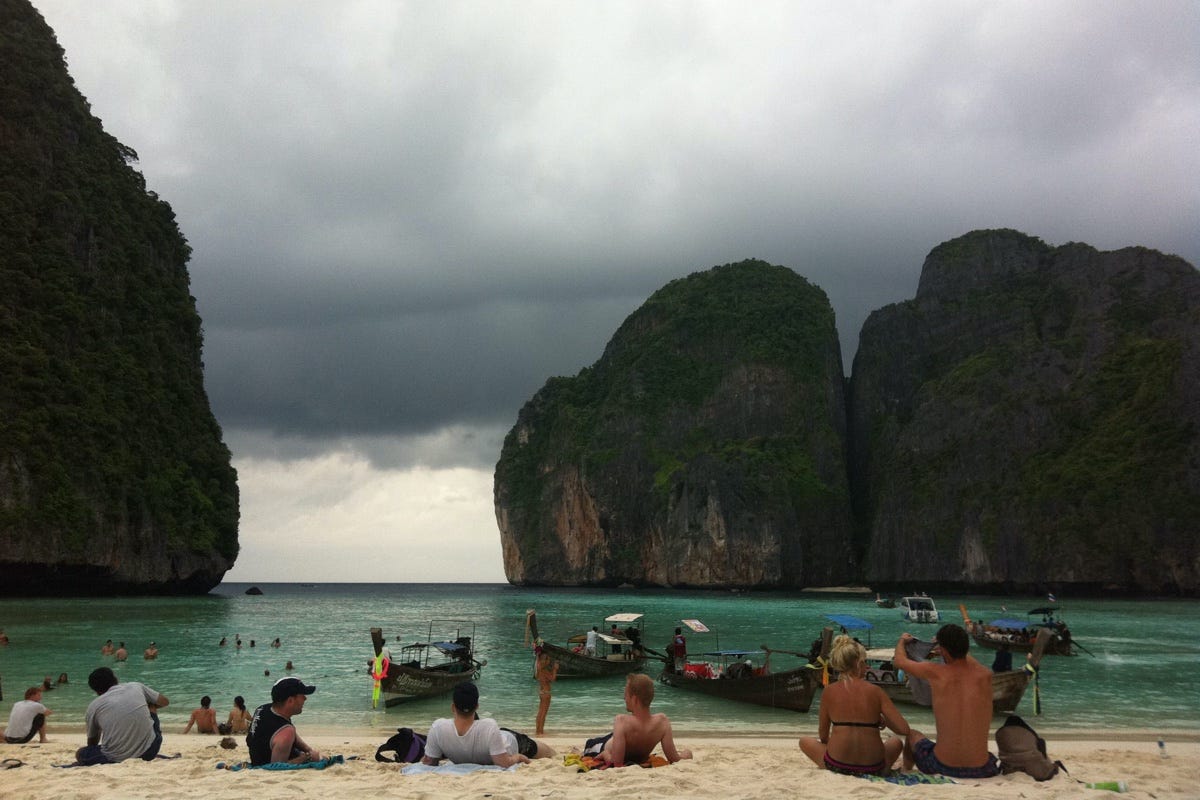
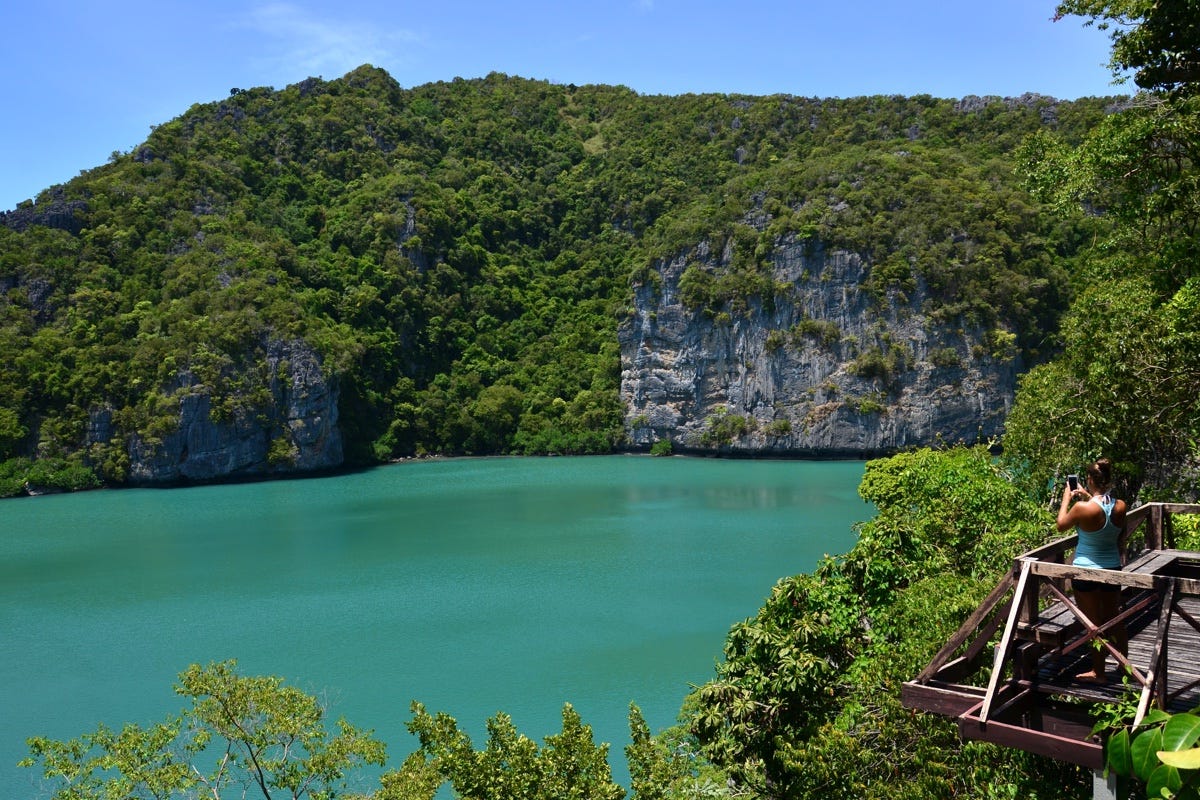
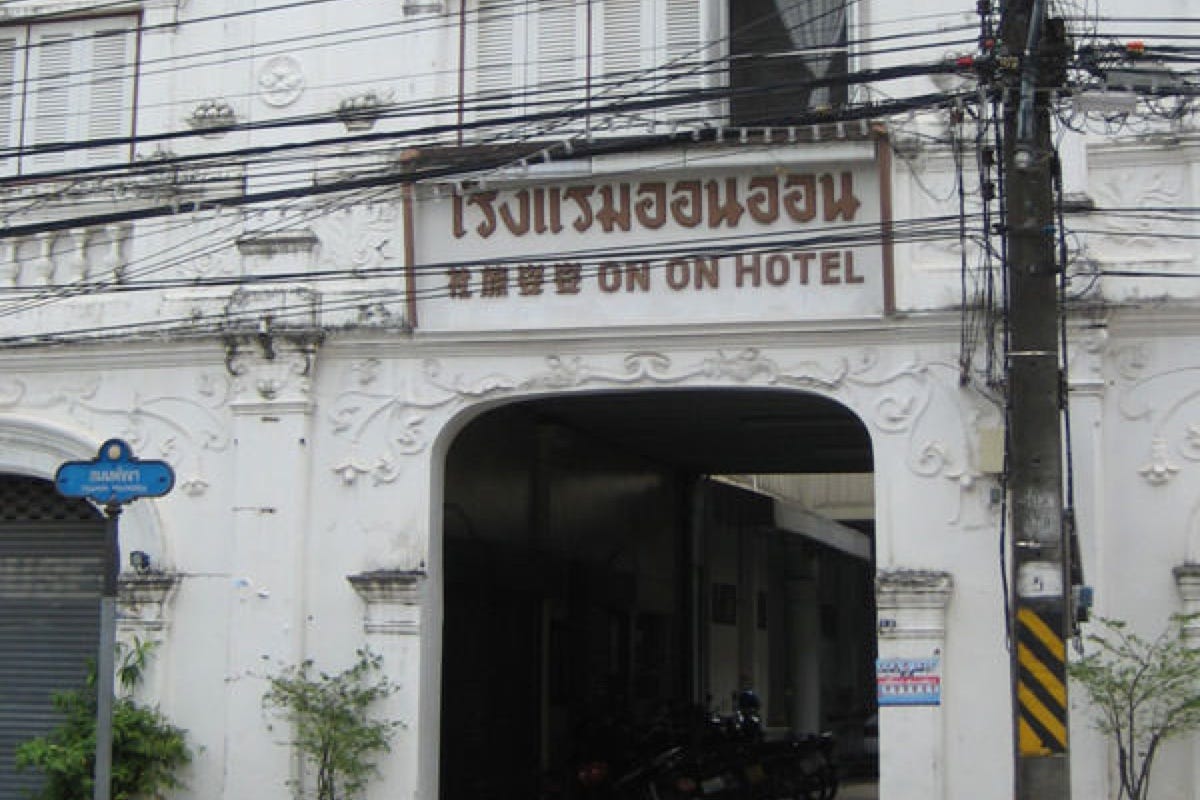
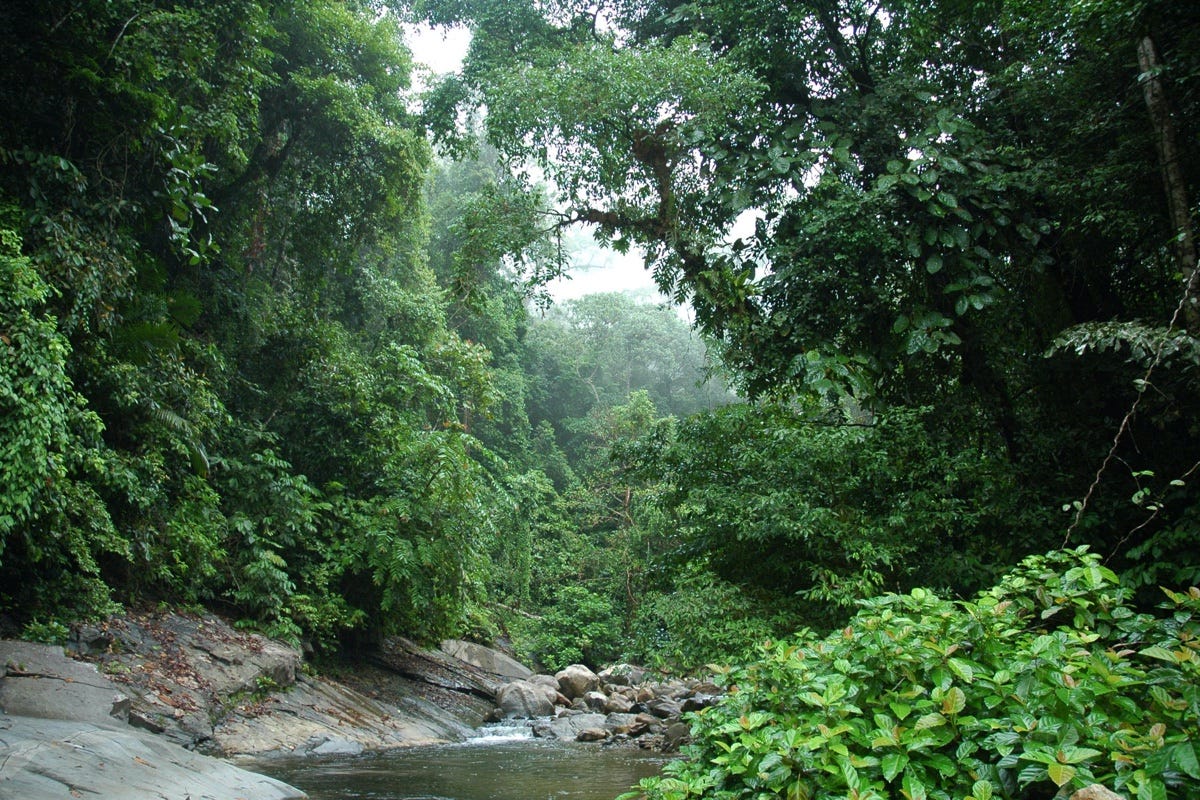

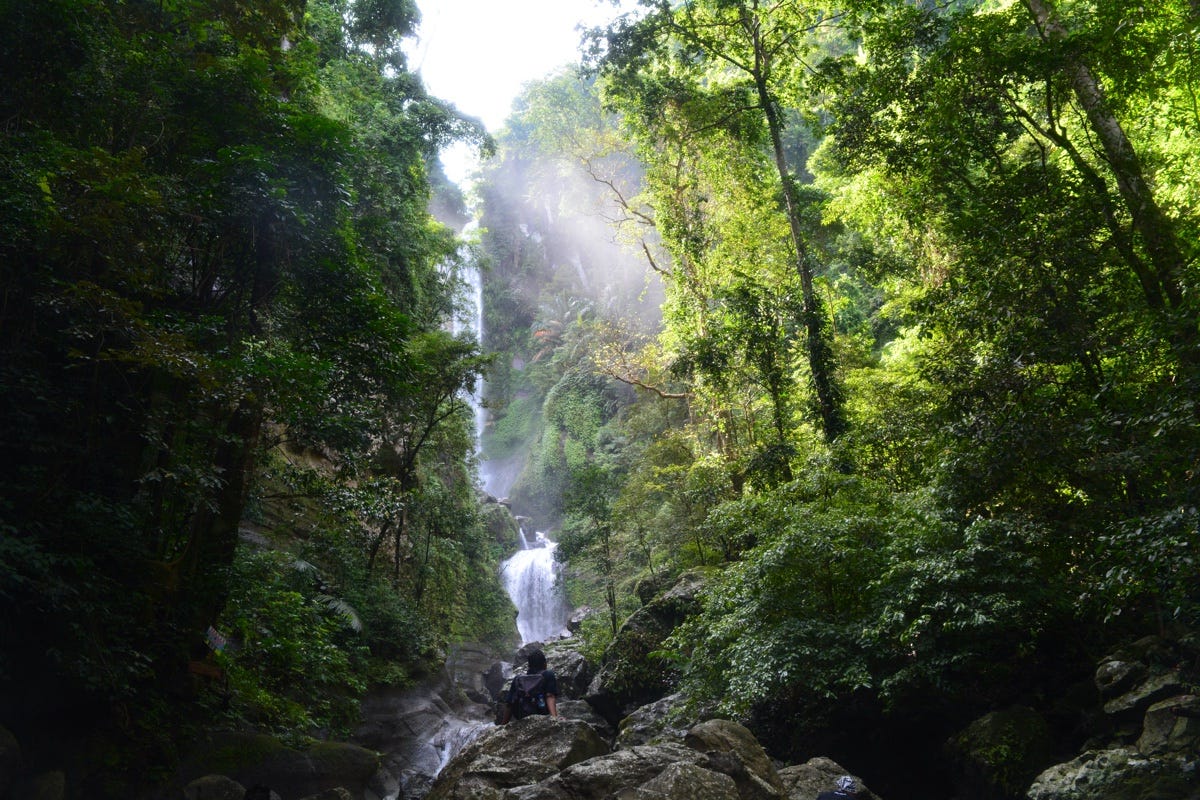


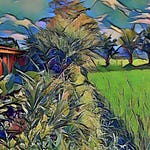

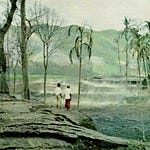
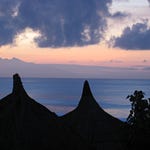
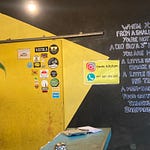
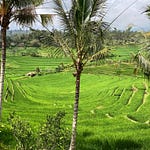

Share this post